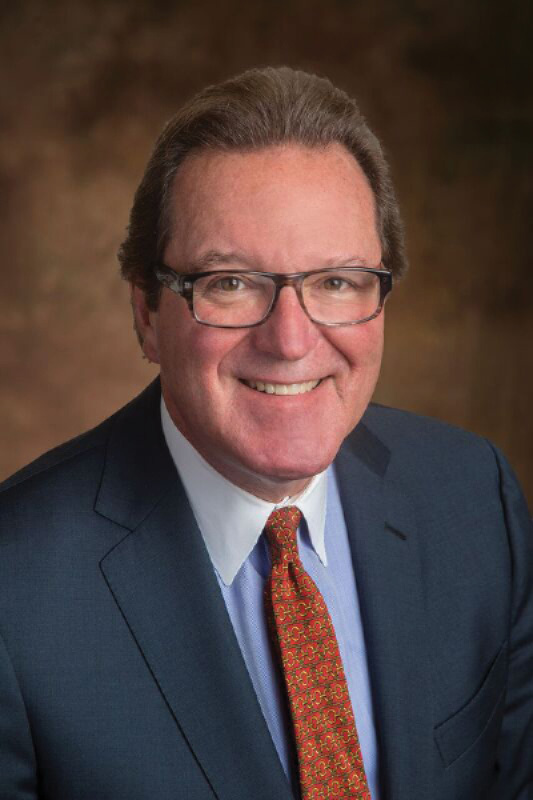by Pierre G. Villere
My well-known optimism, even throughout the last Great Recession, has been shaken by the swift and sudden collapse of the global economy, including ours here in the U.S., in the face of the novel coronavirus also known as Covid-19. I am not any different than most consumers, except that I probably fall within the upper tier of those who see life through rose-colored glasses, and therefore espouse optimism at every turn.
But the latest consumer confidence numbers, the most current available as I write this, are only a couple of days old—and the fall in confidence, also known as sentiment, has been drastic. This important measure is critical, as I have written many times in the past, because the American consumer represents fully 70 percent of our entire economy. Confidence was shaken somewhat in the last two weeks of March, resulting in the Conference Board’s report that the index dropped to 118.8 from 132.6 in February.
The April numbers were just reported, and the further drop since the end of March has been even more precipitous: The Index now stands at 86.9 (the baseline of 100 was established in 1985), down an unbelievable 45.7 points since the February report. The Conference Board’s Present Situation Index, based on consumers’ assessment of current business and labor market conditions, declined even more, from 166.7 to 76.4. However, the Expectations Index based on consumers’ short-term outlook for income, business and labor market conditions, improved from 86.8 in March to 93.8 this month.
The 90-point drop in the Present Situation Index, the largest on record, reflects the sharp contraction in economic activity and surge in unemployment claims brought about by the Covid-19 crisis, hurling 30 million Americans into the unemployment lines as of this writing, with no doubt more to come this month. Having said that, consumers’ short-term expectations for the economy and labor market improved, likely prompted by the possibility that stay-at-home restrictions will loosen soon, along with a re-opening of the economy. However, consumers were less optimistic about their financial prospects and this could have repercussions for spending as the recovery takes hold. Like my own sentiments right now, the uncertainty of the economic effects of Covid-19 will likely cause expectations to fluctuate in the months ahead.
We now know the U.S. economy shrank in the first quarter at its fastest pace since the last recession as the coronavirus pandemic shut down virtually the entire country, ending the longest economic expansion on record.
Gross Domestic Product, or GDP, is the broadest measure of goods and services produced across the economy, and it contracted at a seasonally and inflation adjusted annual rate of 4.8 percent in the first three months. Many economists say the decline marks the beginning of a near-certain recession, and is the biggest drop in quarterly economic output since the fourth quarter of 2008. But the outlook for the recovery, although cloudy, can only be hastened by the aggressive action of the Federal Reserve, which has announced a pledge to use “its full range of tools to support the U.S. economy in this challenging time,” according to a statement released after a recent rate-setting meeting where it left interest rates near zero and didn’t announce any new policy measures.
Federal Chairman Jerome Powell said the U.S. economy would need additional spending from Congress and the White House to ensure that a robust recovery could take hold following a broad and deep deterioration from the pandemic. Congress and President Trump have already provided more than $2.6 trillion in several economic assistance measures over the last two months. It is the combination of Fed action coupled with the promise of Congress and Trump to add additional stimulus that has bolstered my usually unshakeable optimism, which reflects in my sentiment about what lies ahead.
While this horrid pandemic has prompted a record souring of consumers’ confidence in their futures and the U.S. economy, they nevertheless remain hopeful the gloom will be short-term.
 Pierre G. Villere serves as president and senior managing partner of Allen-Villere Partners, an investment banking firm with a national practice in the construction materials industry that specializes in mergers & acquisitions. He has a career spanning almost five decades, and volunteers his time to educating the industry as a regular columnist in publications and through presentations at numerous industry events. Contact Pierre via email at [email protected]. Follow him on Twitter – @allenvillere.
Pierre G. Villere serves as president and senior managing partner of Allen-Villere Partners, an investment banking firm with a national practice in the construction materials industry that specializes in mergers & acquisitions. He has a career spanning almost five decades, and volunteers his time to educating the industry as a regular columnist in publications and through presentations at numerous industry events. Contact Pierre via email at [email protected]. Follow him on Twitter – @allenvillere.
